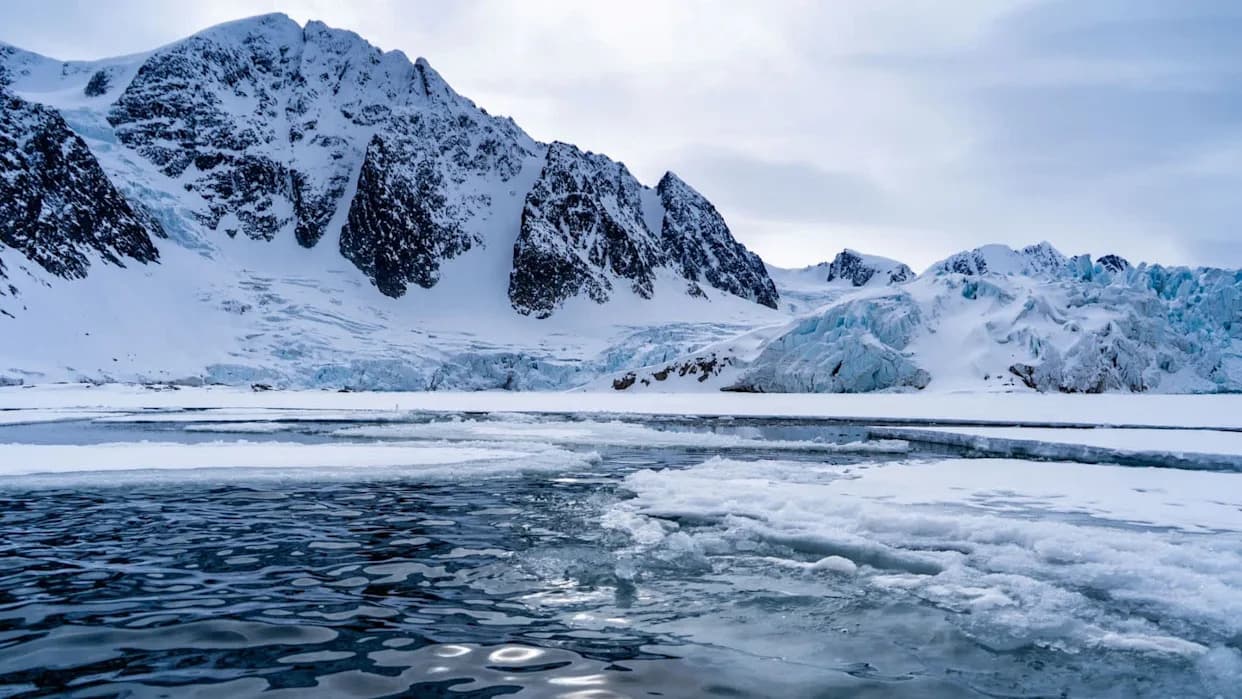Scientists warn that the Atlantic Meridional Overturning Circulation (AMOC)—the ocean current that carries warm water north—is showing signs of dramatic decline. Continued warming and increased freshwater from melting ice could weaken or, in extreme scenarios, collapse the AMOC, which in Earth's past has been linked with abrupt regional climate shifts. While a global 'new ice age' is not a given, the potential regional impacts—colder European winters, altered storm tracks and local sea level rise—are serious. Experts call for expanded monitoring, better models and rapid mitigation efforts.
Is a New Ice Age Possible? Scientists Warn Atlantic 'Conveyor' (AMOC) May Be Near Collapse

Scientists warn of a threatened Atlantic circulation that moderates global climate
Researchers are raising urgent alarms about rapid changes in the Atlantic Meridional Overturning Circulation (AMOC) — the vast ocean "conveyor belt" that carries warm water from the tropics northward toward the Arctic. That northward heat transport helps moderate winters in Europe and influences weather patterns across the Northern Hemisphere.
The central concern is that rising global temperatures and increased freshwater from melting Arctic ice and Greenland are altering the density and salinity of North Atlantic waters. Those changes can slow or, in extreme scenarios, trigger a substantial weakening or collapse of the AMOC. Paleoclimate records show that abrupt AMOC shifts in Earth’s past have coincided with large regional and even hemispheric climate disruptions.
What could happen if the AMOC weakens?
A major AMOC slowdown would not automatically cause a global ice age, but it could produce powerful regional effects: colder winters in parts of Europe, shifts in tropical rainfall patterns, changes to storm tracks, and sea level rise along portions of the U.S. East Coast driven by altered ocean circulation. The timing and magnitude of these changes remain uncertain, and scientists emphasize that collapse scenarios are low-probability but high-impact events.
How such a change would affect coastal surf and swell patterns is not yet clear; local wave climates could shift, producing winners and losers for different coastlines. But the broader environmental, economic and security consequences could be profound.
"It is a direct threat to our national resilience and security," Iceland’s Climate Minister Johann Pall Johannsson told Reuters, noting that his government had formally presented the phenomenon to its National Security Council.
Past examples from the late Pleistocene show that abrupt reorganization of ocean circulation can precipitate rapid climate transitions. While the most extreme historical outcomes involved continental-scale glaciation, today's climate system and human society are different, so scientists are focused on improving models, expanding observations and planning resilient responses.
What scientists and policymakers are doing
Researchers are accelerating monitoring of key ocean properties—temperature, salinity and current strength—and refining climate models to estimate probabilities and likely impacts. Policymakers and security planners are increasingly treating a potential AMOC disruption as a serious risk that merits preparedness, emissions reductions, and adaptive strategies.
Bottom line: An AMOC collapse remains an uncertain, low-probability but high-consequence possibility. It should be taken seriously: expanding observation networks, cutting greenhouse gas emissions, and planning for climate resilience are prudent steps to reduce overall risk.
Originally reported by Surfer (Nov 14, 2025) and citing Reuters coverage of Iceland’s climate minister.
Help us improve.




























